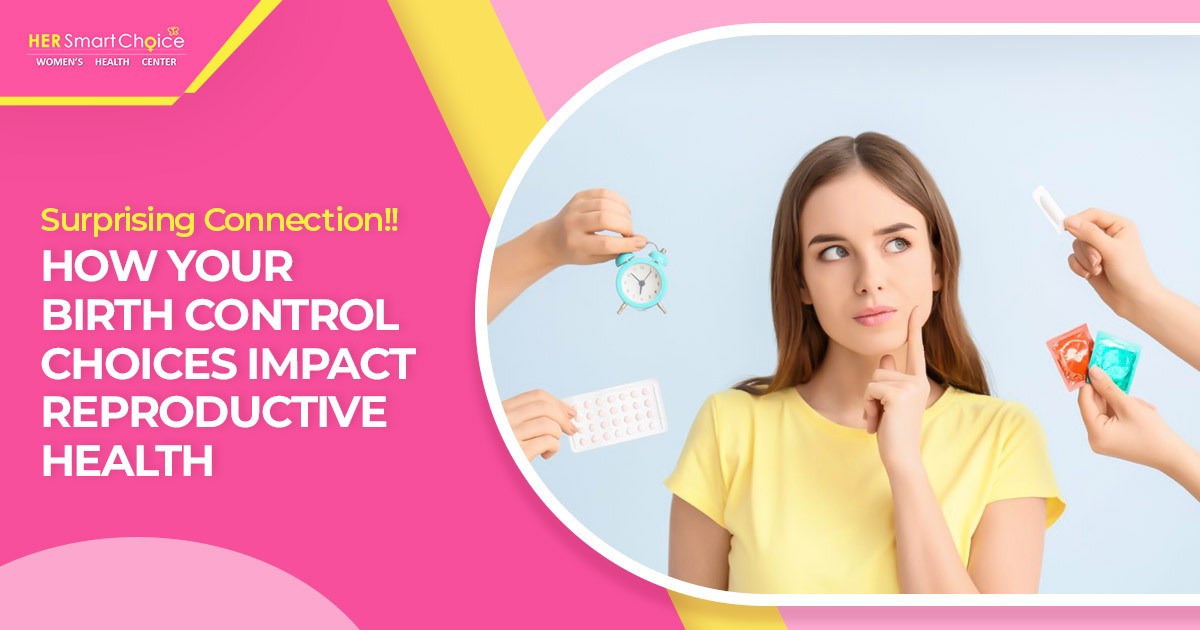The Impact Of Over-the-Counter Birth Control On Reproductive Rights

Table of Contents
Increased Accessibility and Affordability
Over-the-counter birth control holds the potential to revolutionize access to contraception, particularly for underserved populations. Making birth control pills, patches, or other methods readily available without a prescription could dramatically improve reproductive healthcare outcomes.
-
Improved Access for Underserved Communities: Many low-income individuals, those residing in rural areas with limited clinic access, and marginalized groups face significant barriers to accessing healthcare, including birth control. OTC birth control could eliminate geographical and financial limitations, ensuring consistent access to contraception for these vulnerable populations. This is especially critical for individuals who may lack transportation, insurance coverage, or the time to schedule doctor's appointments.
-
Reduced Financial Barriers: The cost of birth control, including doctor visits and prescription fees, can be prohibitive for many. OTC birth control would drastically reduce these financial barriers, making it more affordable for a wider range of people. This increased affordability could lead to higher rates of consistent contraceptive use, ultimately resulting in better family planning outcomes. Studies show a direct correlation between cost and consistent use; making birth control more affordable translates to improved adherence.
-
Potential for Increased Use and Decreased Unintended Pregnancies: Increased accessibility and affordability directly impact contraceptive use rates. Data from countries where certain contraceptive methods are OTC demonstrates higher uptake and subsequently, lower rates of unintended pregnancies. Wider availability of over-the-counter birth control could lead to a significant reduction in unintended pregnancies nationwide, contributing to improved maternal and child health outcomes. This is a critical aspect of promoting reproductive autonomy and reducing the burden on healthcare systems.
Concerns Regarding Safety and Misinformation
While increased access to over-the-counter birth control is a positive step towards reproductive justice, concerns regarding safety and the spread of misinformation cannot be ignored.
-
Potential for Improper Use and Side Effects: Self-medication carries inherent risks. Without the guidance of a healthcare professional, individuals may use birth control incorrectly, potentially leading to reduced effectiveness or adverse side effects. Understanding contraindications and potential drug interactions is also crucial, something that a doctor's consultation ensures.
-
The Role of Education and Information Campaigns: To mitigate the risks associated with OTC birth control, comprehensive public health campaigns are essential. These campaigns should provide accurate information on proper usage, potential side effects, and contraindications for different birth control methods. Easy-to-understand resources, accessible across various platforms, are crucial to ensure effective and safe use.
-
The Spread of Misinformation: The accessibility of information, both accurate and inaccurate, via the internet poses a significant challenge. The spread of misinformation regarding birth control efficacy and side effects could lead to harmful practices and poor health outcomes. Robust media literacy programs are needed to equip individuals with the critical thinking skills to differentiate credible sources from unreliable ones.
The Impact on Healthcare Professionals
The availability of over-the-counter birth control would undoubtedly reshape the landscape of reproductive healthcare.
-
Shifts in the Role of Healthcare Providers: Healthcare providers' roles may shift from primarily dispensing birth control to focusing more on counseling, managing side effects, and addressing more complex reproductive health concerns. This transition requires appropriate training and resources for healthcare professionals.
-
Potential Increase in Demand for Related Services: While some individuals might manage their birth control independently, others may require increased support for managing side effects, addressing complications, or seeking alternative contraceptive methods. This shift could increase the demand for related healthcare services, requiring adjustments in healthcare system capacity.
-
The Need for Ongoing Medical Monitoring: Regular check-ups remain crucial even with OTC birth control. Healthcare providers can monitor overall health, identify any potential complications, and provide personalized advice. Adapting healthcare delivery models to better accommodate this ongoing monitoring will be crucial.
Legal and Ethical Considerations
The transition to over-the-counter birth control involves navigating complex legal and ethical considerations.
-
Regulatory Hurdles and Approvals: Securing FDA approval and navigating the legal pathways to make birth control OTC is a complex and potentially lengthy process. This involves extensive clinical trials and risk assessments to ensure safety and effectiveness.
-
Ethical Considerations Surrounding Access and Autonomy: Expanding access to reproductive healthcare raises ethical questions about patient autonomy and informed consent. Ensuring that individuals are fully informed about the benefits and risks of OTC birth control is crucial to upholding ethical standards.
-
Potential for Discrimination and Bias in Access: Care must be taken to prevent disparities in access based on race, ethnicity, socioeconomic status, or geographical location. Equitable distribution of OTC birth control requires addressing existing systemic inequalities in healthcare access.
Conclusion
The debate surrounding over-the-counter birth control is complex, presenting both opportunities and challenges. While OTC birth control offers the potential for increased access and reduced unintended pregnancies, concerns about safe usage, healthcare provider roles, and misinformation require careful consideration. A comprehensive approach that balances increased access with robust education campaigns and ongoing medical monitoring is crucial. Ultimately, the goal should be to ensure that all individuals have access to safe and affordable over-the-counter birth control options, empowering them to make informed decisions about their reproductive health. Further research and open dialogue are essential to navigate these complexities and achieve this vital goal.

Featured Posts
-
 Daftar Lengkap Juara Premier League Sepuluh Tahun Terakhir
May 21, 2025
Daftar Lengkap Juara Premier League Sepuluh Tahun Terakhir
May 21, 2025 -
 Tory Councillors Wife Jailed For Hotel Fire Tweet Appeal Pending
May 21, 2025
Tory Councillors Wife Jailed For Hotel Fire Tweet Appeal Pending
May 21, 2025 -
 Nyt Mini Crossword Hints April 26 2025
May 21, 2025
Nyt Mini Crossword Hints April 26 2025
May 21, 2025 -
 Breite Ton Efimereyonta Iatro Sas Stin Patra Savvatokyriako
May 21, 2025
Breite Ton Efimereyonta Iatro Sas Stin Patra Savvatokyriako
May 21, 2025 -
 Abn Amro Facing Dutch Central Bank Scrutiny Over Bonus Payments
May 21, 2025
Abn Amro Facing Dutch Central Bank Scrutiny Over Bonus Payments
May 21, 2025
